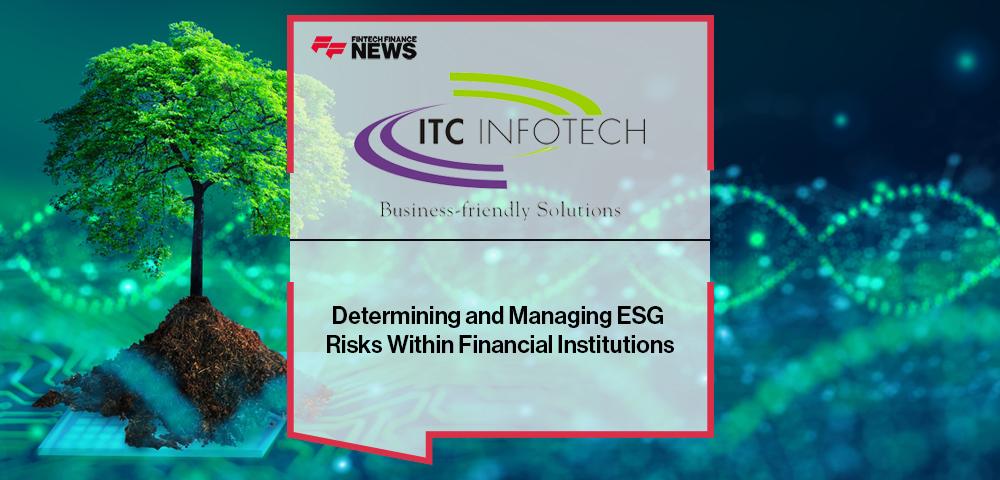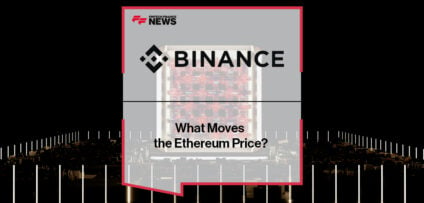Breaking News

Determining and Managing ESG Risks Within Financial Institutions
By: Sachin Kumar, Vice President – Banking & Financial Services, ITC Infotech and Pradeep Bhaganna, Associate Partner – Banking & Financial Services, ITC Infotech
The need:
When one mentions Environmental, Social and Governance (ESG) risks, the industries that first come to mind are mining, manufacturing, oil & gas and construction. One industry that is less acknowledged is the Banking and Financial Services. ESG Risks in Financial Institutions require diligent management oversight. While internal ESG compliance, project oversight, and regulatory reporting are critical, financial institutions must go beyond that to facilitate decarbonization in loan portfolios and promoting ESG considerations across their book of business. Specifically, around investment management, this includes incorporating non-financial data to enhance investment strategies, adopting norms-based screening, pursuing thematic portfolio goals, and supporting impact investing. Hence tracking relevant metrics by ESG elements, asset classes, and industries ensures overall goal achievement.
Banks have a significant ESG footprint and play a crucial role in financing industries and projects impacting the environment. By effectively managing ESG risks and integrating nonfinancial goals, banks can enhance risk-adjusted returns, mitigate portfolio risk, and strengthen their market position.
Challenges:
Determining ESG risk relies on accurate & comprehensive data, but lack of clear reporting standards and limitations in historical data can present challenges. Further, the lack of standardization has led to financial data providers and aggregators adopting different methodologies for calculating ESG ratings over the years. Current practices sometimes lead to greenwashing, prompting greater scrutiny of ESG credentials from regulators and stakeholders. It’s crucial for financial institutions to identify relevant ESG risks impacting their operations and financial standing. While many financial institutions have embarked on the ESG journey, we still see many struggling to identify and implement platforms & tools that come with out of the box features to:
- Help define ESG policies for the bank, establish and actively monitor controls.
- Carry out ESG due diligence of their corporate customers on a continuous basis, generate normalized ESG scores leveraging external information providers and effectively integrate risk with the bank’s credit risk and underwriting processes.
- Identify and manage the risks coming out of ESG metrics tracking for corporate clients and manage client relationships and exposures effectively.
- Define and manage investment strategies considering easily quantifiable ESG goals and by way of seamlessly incorporating concepts of screening & tilting.
- Manage effective ESG reporting around SFDR and across many other many other regulations besides generating interactive dashboards to visualize risks & compliance adherence.
Solution:
Financial institutions require a robust ESG technology ecosystem founded on data-driven principles and cognitive intelligence, for effective analysis and decision-making. This encompasses the following components:
- Data Lifecycle Management: Capturing, organizing, and maintaining data integrity is pivotal for risk assessment and creating a golden ESG source, which supports business reporting and analytics. This would be critical for generating business MIS, overall reporting as well as for performing analytics.
- Intelligent Document Processing (IDP): Automation of documents that house client’s ESG initiatives and performance metrics, can streamline operations, reduce costs, and improve data quality.
- Due Diligence Platform: This facilitates ESG due diligence using normalized ESG scores, tracking entity & instrument performance, monitoring ESG risks, and managing incidents. It should offer robust intelligence and integration capabilities, providing risk insights to downstream applications.
- Cognitive Intelligence Capability: It’s crucial to understand the impact of ESG scores on credit risk, underwriting processes, exposure modeling, stress tests, product pricing models, among others.
- ESG Compliance Reporting: An efficient reporting system is needed for real-time risk visualization, compliance reporting and analytics. Given the diverse frameworks and standards for ESG disclosures, including TCFD, GRI, SASB, and the World Economic Forum’s metrics, an enterprise reporting system architecture & enabling processes is essential.
In Conclusion
Anticipating globally harmonized ESG policies with impactful materiality factors and steep penalties, financial institutions must prepare robust technology infrastructure with effective data, reporting, governance, and automation capabilities. The goal is to extract ESG insights from structured and unstructured data, integrating them into daily operations and continuously monitoring impact. Regulatory pressures, opportunities for making ESG a competitive advantage and over time the availability of “As a Service” fit to purpose technology infrastructure will aid this green adoption journey.
To future-proof themselves, banks must integrate ESG risks into their overall risk management frameworks. Practices such as regular stress testing, adopting risk premiums, and managing exclusion & tilting policies can mitigate ESG risks and facilitate a swift course correction. While digitally progressive financial institutions have started enabling their customers to control their own sustainability & ESG efforts, we believe that as an industry there is a lot more to be done.
Companies In This Post
- Why Risk Prevention Is Insurance’s Future Read more
- Finovate Europe 2026: Create a Reinvented Version of Your Company Logo Read more
- Google’s Practical AI Playbook for Banks and Fintechs Read more
- Digital Transformation & Innovation in Insurance: A Leadership-Led View of What’s Working Read more
- The FRS 102 Deadline Is Accelerating Finance Modernisation Across the UK Read more


















